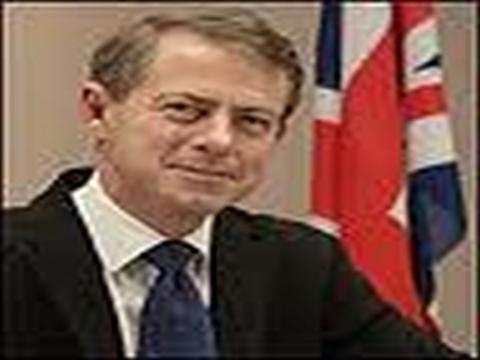By Ian Hughes
“Every election is determined by the people who show up” – Larry J. Sabato, Academic and pollster. On November 17 Sierra Leoneans will choose their leaders for the next five years. Campaigning has begun. Boisterous crowds chant and sing, wave placards and dance behind their candidates. Walls are plastered with posters. Newspapers admire this candidate, assail that one. TV and radio bustle with comment, criticism and analysis. When the winners are known they will celebrate and the losers will commiserate: until next time, when the process will begin all over again. While Sierra Leone is abuzz with election preparations, what should Ambassadors and diplomats do? I am asked this question frequently as November looms. My answer – that we conduct business as usual – is welcome to the majority, but disappoints a few. This is because the few think that diplomats should sit quietly in their chancelleries and stay out of the way. I can’t say that they are wrong – it’s their opinion after all and opinions are neither “right” nor “wrong”, they are simply opinions. But I can say that they misunderstand the role of diplomats in the twenty first century. Once upon a time diplomacy was a country-to-country and government-to-government affair. That is not the case today. President Koroma recognised this when he said that “one-track diplomacy” no longer fits in the modern world. Today, public diplomacy encompasses more than just insiders and it stretches wider than what used to be called foreign policy. As diplomats seek to understand their host countries they have to interact with politicians, officials, academics, journalists, business and civil society. In short, diplomacy and public relations have come together. In Sierra Leone I talk to government and civil society, Parliament and business, universities and media. I participate in traditional workshops, seminars and briefings but also need to engage in digital diplomacy and hope soon to be using Facebook and Twitter as well as this blog. With this matrix of media and messages, diplomacy now focuses on key themes that shape our world, make is safe and generate prosperity: democracy, the rule of law, equality of opportunity and human rights. While I talk about these things I am not prescriptive: it is for Sierra Leoneans to decide what they think and what they want. My key public diplomacy role is to contribute to the debate and to understand what it says about Sierra Leone. Turning to the elections, I must make one thing very clear: the international community, of which I and my team form a small part, supports democracy, the democratic processes and the democratic institutions that make them work. We are absolutely neutral when it comes to parties, candidates and voting preferences. It is entirely up to Sierra Leoneans who wins and who does not come 17 November. It has to be that way or democracy is not at work. So I talk to Flagbearers, candidates, strategists and voters. I want to appreciate what they stand for, what they worry about, what they want for their country’s future. All diplomats do this. In Ghana, in the USA and in Israel diplomats ask similar questions ahead of those countries’ respective elections. And I can tell you from personal experience that when the UK held its election in 2010, Sierra Leonean diplomats did this there too. As we go about asking our questions, we are in turn asked for our opinions on what we see. And that’s where I can sometimes disappoint my friends. Because they forget one of the fundamental rules of the human condition: we can criticise our own as vividly as we like, but woe betide the outsider who dares say the same. The rule works for families, for football clubs and for countries. So I am very careful about what I say. I try to say it in ways that are clear and to the point without giving offence. I’m human and may sometimes stray across someone’s line here or there, particularly if the line in question is drawn after I’ve spoken. But my commitment is this: whatever I say will be the informed observation of a friend of Sierra Leone; it will be intended to describe not to criticise; it will not favour one electoral outcome or another; and it will be consistent with the norms of diplomacy as understood in the second decade of the twenty first century. Finally, I came across the quote above while researching this blog post. I like it. Let me know what you think of it. Thumb up, thumbs down or a comment – you get to choose! Ian Hughes is the British High Commissioner to Sierra Leone and this article is taken from his blog posted on 30 October 2012








